< Back to Partners & supporters
International, European and national healthcare societies support the European Standards of Care for Newborn Health (ESCNH). Several members of healthcare societies are active participants of the project – either in the role of a Topic Expert Group (TEG) chair or member.
If you wish to learn more about a society, please click on the link in the logo.
If you are a member of a professional organisation in the area of perinatology or paediatrics and are interested in joining the community promoting the ESCNH as a supporting organisation, please contact us.
COINN represents global unity for neonatal nursing. The Council speaks with one strong voice to facilitate the growth of neonatal nursing and improve healthcare outcomes for our patients and families worldwide. The role of the Council is advocate, policy maker, quality evaluator, collaborator with healthcare, corporate, and lay groups, educator of health professionals, legislators, and lay public, and leader in global neonatal nursing.
The Fetal Medicine Foundation (FMF) is a Registered Charity that aims to improve the health of pregnant women and their babies through research and training in fetal medicine. It is supported by The Fetal Medicine Centre and by private donations. The Foundation, with the support of an international group of experts, has introduced an educational program both for healthcare professionals and parents and a series of certificates of competence in different aspects of fetal medicine. Founder and Director of both the Fetal Medicine Foundation and the Fetal Medicine Center is Professor Kypros Nicolaides.
The GSA is a non-profit charity organization with the mission to provide global leadership to reduce the worldwide burden of sepsis. The GSA is the initiator of World Sepsis Day on September 13 and World Sepsis Congress, a series of free online congresses bringing knowledge about sepsis to all parts of the world, among other initiatives. The GSA works closely with its over 90 member organizations, patient advocacy groups, professional societies, healthcare authorities, and governments to implement changes on how sepsis is prioritized, diagnosed, and treated all around the world, as laid out by the WHO Resolution on Sepsis.
IPOKRaTES, an acronym for International Postgraduate Organisation for Knowledgetransfer, Research and Teaching Excellent Students, is a non-governmental, non-profit and charitable, registered academic society which offers postgraduate seminars mainly in pediatrics and neonatology, worldwide.
IPOKRaTES seminars provide high-quality education in form of small group seminars that enables professionals to keep abreast of the most recent developments, and offer participants the opportunity to discuss practical problems or scientific issues personally with international experts.
The NIDCAP Federation International, NFI, promotes the Newborn Individualized Developmental Care and Assessment Program (NIDCAP) in hospitals and encourages its use nationally and internationally to support the growth and development of premature infants and to improve the quality of their care and the support for their families.
Formed in 2001, the NFI is a private, non-profit, charitable organisation committed to providing the highest quality of education and training for professionals who provide care for infants in newborn intensive care nurseries and support their families.
The World Association of Perinatal Medicine (WAPM) has been established and registered in Barcelona, Spain, as a non-profit making association and as a continuity of the previous „World Federation of Perinatal Medicine“. The purpose of WAPM is to unite efforts of groups and individuals within the framework of the World organization in order to promote perinatal medicine for the benefit of the public and professionals, in particular by:
The Alliance for Childhood is an European Network organisation which aims to:
EURAIBI’s aim is prevention, treatment and study of the suffering brain in the fetus and newborn, by sharing the experiences of International centers of excellence in specific areas: pathophysiology of fetal central nervous system, maternal-fetal relationship, intrauterine environment, diagnostic imaging, delivery room conundrums, developmental care, pain in the fetus and newborn. EURAIBI is particularly devoted to maternal diseases in pregnancy, intrauterine infections, asphyxia, and prenatal and postnatal treatment of infants at high risk of brain damage.
The aim of the European Association of Perinatal Medicine is to bring together groups and individuals in a European organization to promote the science of perinatal and maternal medicine for the benefit of mothers and their children. In this context the EAPM organizes a large European congress every two years, and together with its working groups national and international educational courses and meetings. The EAPM stimulates international research projects, develops guidelines and brings site-visits to perinatal units to accredit teaching and training in perinatology.
EBCOG is the Board and College of the Obstetrics and Gynaecology Section of the Union Européenne des Medécins Spécialistes (UEMS). EBCOG began in 1996 as a fusion between the European Board of Gynaecology and Obstetrics (EBGO) and the European College of Obstetrics and Gynaecology (ECOG). EBCOG is an organisation made up of 36 countries and based in Brussels. Our objective is to improve the health of women and their babies by promoting the highest possible standards of care in all European countries. We bring together high-level professionals from the obstetrics and gynaecology field from all our member countries.
The European Society for Paediatric Gastroenterology Hepatology and Nutrition (ESPGHAN) is a multi-professional organisation whose aim is to promote the health of children with special attention to the gastrointestinal tract, liver and nutritional status, through knowledge creation, the dissemination of science based information, the promotion of best practice in the delivery of care and the provision of high quality education for paediatric gastroenterology, hepatology and nutrition professionals in Europe and beyond.
The European Society for Paediatric Research (ESPR) has been at the forefront of Paediatric medical care and innovation since 1958.
As one of the oldest and most prolific Paediatric research societies in Europe, we organise annual conferences, support investigators with research grants, run a mentoring programme and disseminate cutting-edge findings through our journal Pediatric Research.
In addition, together with the European Board of Neonatology (EBN), the educational branch of the ESPR, we provide regular teaching courses that underpin key areas of practice within the Neonatal Curriculum.
Based on our heritage and proudly looking back at a long list of achievements, we continue to promote scientific excellence and collaboration between different Paediatric specialities—from bench to bedside.
Mission: Developing and applying research to improve newborn and child health.
The Euro-Peristat project’s goal is to develop valid and reliable indicators that can be used for monitoring and evaluating maternal and newborn health in the EU. The project began in 1999 as part of the Health Monitoring Programme and is currently part of the European Joint Action on Health Information (InfAct). Euro-Peristat’s most recent report brings together perinatal indicators from 31 European countries and was issued in November of 2018.
Pain in Early Life – PEARL – is a group of researchers, mainly from the Nordic countries, who are dedicated to help children to a life without pain. PEARL’s expertise lies within the fields of non-pharmacological pain management, pain assessment, and the role of parents in pain management. Our work targets three groups: parents, health care professionals and researchers, and PEARL collaborates with pain experts all over the world.
The mission of UENPS is to improve healthcare in the neonatal and perinatal medicine in the European countries. Main goals of UENPS are to improve quality in perinatal and neonatal care by integrating, coordinating and adding national and scientific societies’ efforts, to promote the knowledge of the perinatal indicators and to develop recommendations, guidelines, training of the healthcare providers and any other tool to achieve the best healthcare for every newborn and surveillance of neonatal rights wherever they are born.
Following on UENPS’ mission, a division named “UENPS Hall Knowledge” has been established in 2019. Its aim is to gather all the experience and cultural activities developed throughout the years and offer a wider educational approach to the hot topics of neonatology.
Albanian Pediatric Society is a new society founded in 1995. It has a lot of members, pediatricians, neonatologists and family doctor and is enlarging every year with new members. An annual national conference with international participation is organized every year. ” Pediatrics Day” is a symposium with definied topic organized twice a year in collaboration with Department of Pediatrics. The pediatric Association organizes once a year neonatology conference and neonatological trainings from across the country. Neonatologists and nurses who take care of the newborn are part of these activities. Also activities are organized every year on the day of prematurely infant babies gathering infants, their parents, neonatologists, nurses, midwives, students etc. Mission: The mission of the association gets encouragement from the words of our Mother Theresa “Not all of us can do great things. But we can do small things with great love.”
The Austrian Society for Paediatric Medicine (Österreichische Gesellschaft für Kinder- und Jugendheilkunde – ÖGKJ) is a medical-scientific professional society that acts as a platform for paediatricians for the general public as well as within other medical disciplines. The aim is to emphasize the significance of paediatrics including specialist care in general healthcare. In order to achieve this goal, the ÖGKJ provides targeted information. For paediatricians, the society offers numerous local and supra-regional training measures. This way, the ÖGKJ can guarantee high-quality education and training. Furthermore, the society tries to actively support scientific work and to contribute to health policy decisions.
The Austrian Society for Pre- and Perinatal Medicine (Österreichische Gesellschaft für Prä- und Perinatale Medizin – ÖGfPPM) is a medical-scientific professional society that acts as a platform for obstetricians, neonatologists, pediatric surgeons, and anesthesiologists as well as for the public. The aim is to support scientific work, to improve medical education and clinical practice and to optimize health policy decisions in order to contribute to the well-being of pregnant women and neonates.

Kind en Gezin, together with its partners, aims to create as many opportunities as possible for every child, regardless of where he or she was born or where and how he or she is growing up. Kind en Gezin (Child and Family) is an agency that works actively in ‘Public Health, Welfare and Family’ policy area. This Flemish agency focuses on preventive treatment and guidance of young children geared to good outcomes in the future. We work hard to enable children to achieve their full developmental potential, physically, mentally, emotionally and socially, with respect for diversity and children’s rights. This principle holds good for all the different areas that we work in. Kind en Gezin is responsible for:
We closely monitor all changes in society as a matter of course. Day in day out we come into contact with thousands of families and work with partners and other actors in the field. This gives us a wealth of information, allowing us to respond proactively and at the most appropriate time. We develop scientific methods, in both educational and medical fields, to assist us in our work. We constantly adapt our services, so that we can offer every parent and every child the best help possible. We also participate in national and international campaigns and projects: with boundless respect for every child and for the rights of the child.
The Flemish Society for Obstetrics and Gynecology (VVOG) is a scientific professional and members’ association of, for and by gynecologists, assistants in training and retired gynecologists. What does VVOG do for her members?
Alliance of Bulgarian Midwives (ABM) is a voluntary, independent, non-political and non-partisan organization whose main goal is to work towards introducing the midwifery model of care. It is an association of midwives. The Alliance’s members believe that providing continuity of care is one of the strongest determinants of positive results in maternal and child health care. We believe women must be provided with opportunities to give birth to healthy babies in a safe, friendly, respectful and satisfying environment regardless of place of birth. The Alliance’s position on introducing the midwifery model of care is as follows:
Our strategic plan for strengthening and development would aim at:
The Canadian Association of Neonatal Nurses is a non-for-profit organization that represents nurses from across Canada who specialize in the care of newborn infants and their families. We pride ourselves on providing educational and networking opportunities of the highest quality for neonatal nurses in Canada.
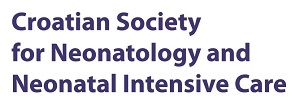
The Czech Neonatology Society, a member of the Czech Medical Society of Jan Evangelista Purkyne, joins neonatologists as well as nurses and other professionals envolved in the care for neonates. Neonatology in the Czech Republic reached remarkable successes during the last twenty years that brought about very low neonatal mortality rate as well as significant decreases in early and late morbidities in preterm infants. Neonatologists´ concern is focused further on long-term developmental care. Furthermore, meetings with preterm children and their parents take place in flourishing collaboration with parental organisation „Nedoklubko“.
The Czech Association of Nurses (CAS) was founded in 1991. Our Association is a voluntary, self-governing, non-political, professional organization of health care professionals with secondary, tertiary and university education.
It is the largest professional organization of non-medical workers operating in the sector of health, social care, education and in all areas of private or other business, regardless of nationality or religion, operating throughout the Czech Republic. In its activities, CAS focuses on the development of nursing as a field, development of the nursing profession, support for the publication of professional publications, cooperation with institutions and the development of interdisciplinary and international cooperation.
Main objectives of the Czech Association of Nurses:
The activity of the Czech Association of Nurses is based on the work of specialized sections and regions. Individual sections and regions organize regular professional educational events, seminars, conferences, thus ensuring the exchange of experience and transfer of information, solving professional matters of their members in accordance with the mission of CAS.
The Estonian Nurses’ Union is the largest non-profit organization bringing together nurses in Estonia. Our main goal is to develop the professional field and offer trade union protection to our members. We participate in the development of the Estonian health care system daily. We cooperate with nursing schools and health care institutions. The Estonian Nurses Union is a member of EFN and ICN, so we are aware of and contribute to the development of the nursing profession in Europe and the world.
Estonian Perinatal Society promotes and develops perinatal medicine in Estonia, promotes collaboration between different specialists (pediatricians, obstetricians, midwifes, neonatal surgeons, geneticists, neonatal and child intensive care doctors and nurses. Our main goals are:
Founded in 1949, the National Association of Pediatric Nurses and Students (ANPDE) is the only association that defends and brings together the professionals of the pediatric nurse specialty in France. With 2000 members, it aims to promote an ambitious health policy for the 15 million children and to defend their interests and those of their families. It represents the 22 000 professionals graduates of the specialty and the students allowing the evolution of the profession and the recognition of the added value of the pediatric nurse. The ANPDE also contributes to professional development by organizing CPD training and an annual congress of high scientific value.
The Institute for lactation education and family centered neonatal staff development has been established in 1994 in cooperation with Leipzig University Maternity and Pediatric hospital and offers training to optimise staff ability to individualise developmental supportive care for at risk neonates and their families as well as qualified service in the medical care and advisory sector. We encourage and support regular information exchange and networking of professionals dealing with expectant or young families. (Pediatric nurses, doctors, midwives, psychologists, physiotherapists, occupational therapists, speech therapists, social workers, health educators, chaplains and lactation consultants). Developmental support for families with preterm infants or newborns with illnesses We offer comprehensive training courses for people professionally involved with preterm infants or sick newborns and their families. The 18-day training consists of six complementary modules, which can also be assigned individually. Participants are thus prepared for their practical and consultancy work in hospitals and private practice. A final certificate is issued after participating in all six modules and writing a thesis. (We reserve the right to make alterations and additions to the workshop and seminar programs.)
Of some 700 000 annual newborns in Germany, almost 60 000 are preterm. Preterm delivery is not only a major worry for families and newborns, it generates significant costs.
BabyCare is a programme to reduce preterm deliveries targeting all risk factors interventable. It was developed in 2000 by renowned obstetricians, midwives, and experts in prevention and health promotion. The success is evident; regular evaluations are demonstrating an overall reduction in preterm births by 25%.
The programme comprises a book covering all the issues arising in pregnancy, a self-administered questionnaire, individual health and nutritional recommendations based on the questionnaire responses, micronutrient optimised recipes, individual advice on medication during pregnancy and a relaxation CD with especially composed music for stress reduction.
After sending the questionnaire to the BabyCare-Team the participants get an individual analysis with tips for a healthy pregnancy and advices about the preterm birth risk.
With regard to the costs of preterm birth and the costs of the programme, the BabyCare programme is evidently highly cost-effective.
For more information about the prevention programme for pregnant woman – BabyCare – please visit the website. A description of the programme in English is available as well.
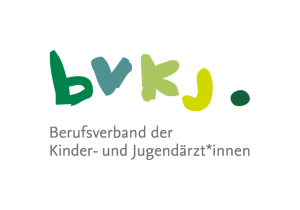
The Berufsverband der Kinder- und Jugendärzt*innen e.V. (BVKJ) is the professional interest group of paediatricians in Germany. 12,000 paediatricians from hospitals, medical practices and public health services belong to the association. The BVKJ committed to equal opportunities and the best possible health care for children and adolescents in Germany. Essential parts of the interest group’s work are to maintaining the conditions laid down in the United Nations Convention on the Rights of the Child and the right of each child to physical and psychological integrity. The interest group develops basic principles, content and scope of practice of the profession of children’s doctors and promots their practical implementation. As part of a comprehensive training programme the BVKJ ensures a contemporary level of knowledge of children’s doctors, doctors in training and assistance professions. With this activities members of BVKJ are always involved close medical and quality of the care of preterm and term born infants.
The Bundesverband Bunter Kreis e.V. incorporates around 91 aftercare facilities. These establishments are distributed at 120 sites all over Germany to support families with seriously and chronically ill children after their hospital stay. Preterm and high-risk births or the diagnosis of a severe and / or chronic disease often trigger feelings such as fear, guilt, anger, helplessness, and result in a fundamental overstraining. Apart from the exhausting situation, affected families are confronted with the confusing health care system, complex therapies, the reorganisation of their work and family life as well as bureaucracy. The aftercare facilities of the Bundesverband Bunter Kreis e.V. support these families with practical support via nurses specialised in follow-up care in order to support the successful reintegration of the sick child, the siblings and the whole family in everyday life. The aftercare services are free of charge for the families. Part of the services are paid for by health insurance companies, the remainder is financed via grants, donations, sponsorships and subsidies.
The German Society of Gynecology and Obstetrics (DGGG e.V.) is one of the grand German scientific associations. The DGGG devoted herself to strengthen the specialist areas of obstetrics and gynecology and promotes the entire field including the subdisciplines, in order to further develop and preserve the unity of the field of obstetrics and gynecology. As a medical society the DGGG is continuously committed to the health of women and represents their health needs also in various political committees.
DGPM, the German Society for Perinatal Medicine, is the oldest and by far biggest society for the interdisciplinary field of perinatal medicine in the German speaking region. Prof. Erich Saling, pioneer in perinatal medicine, founded the society in Berlin. That is where every two years, the DGPM Congresses take place.
Prenatal and obstetric medicine is an important, extremely fast-growing sub-discipline of obstetrics. The aim of DGPGM, the German Association for prenatal care and obstetrics, is the representation of this field in clinical practice, hospital settings and research. In the interest of mothers, children, and families, prenatal and obstetric medicine shall receive promotion according to the international progress made in the field. The DGPGM aims to impart new findings from fundamental and clinical research by organising scientific congresses, conferences, training events and the like. In addition, they support professional autonomy of prenatal and obstetric medicine, without questioning the unity of the whole discipline. Prenatal and obstetric medicine is composed of professional responsibility for mother and child and ranges from preconceptional counselling, over pregnancy and childbirth, to the first days following the delivery. The latter includes the close collaboration with professionals working in neonatology.
The German Foundation for Sick Newborns (Deutsche Stiftung Kranke Neugeborene) is a charitable foundation which was founded in 2014 and is currently under the patronage of the former president of the european parliament, Hans-Gert Pöttering. The general aim of DSKN is to improve the provision of health care not only of preterm infants but also sick newborns. Despite of the medical progress regarding therapy of the vulnerable group, special needs of sick newborns often remain unsatisfied and potentials for treatment are not fully exploited. Therefore, the DSKN promotes and supports projects to help sick newborns in Germany and improve their quality of life, with a special focus on the following 7 aims:
To achieve these goals DSKN does not only financially support different projects that are close to clinical application, but does also serve as a voice of sick newborns in political discussions. The annual “Forum on the future” offers the opportunity for a discussion with political decision makers, health care providers, medical professionals, parents and others involved in the care of sick newborns.
The Sepsis-Stiftung was founded in 2012 and is based in Jena, Germany. The foundation aims to enhance awareness, research and innovation to promote prevention, early diagnosis and treatment of sepsis and to reduce post sepsis-related problems. It also hosts the SepNet study group, a network of more than 100 physicians and scientists representing more than 50 hospitals and universities in Germany, collaborating in various clinical trials and conducting basic scientific research on the subject of sepsis. The foundation is member of the Global Sepsis Alliance, an international organization with more than 50 member states, and participates in various international initiatives to fight sepsis.
Die Stiftung für das behinderte Kind, the foundation for the disabled child, supports early diagnosis, prevention and early rehabilitation of disabled children. Implementation and development of screening and genetic counselling centres in Germany account for some of the successful work of the foundation in the past.
The Stiftung Kindergesundheit (Child Health Foundation – CHF) is actively involved in the healthy development of children and adolescents. It informs the public on key health issues and, in collaboration with partners and specialists, explains preventive strategies that can be implemented in day care, kindergartens and schools. The operative implementation of the foundation’s work is based on three pillars:
Health promotion and prevention are especially important for children. Nowadays pediatric and adolescent medicine can successfully treat a broad variety of illnesses. Yet, health promotion and the prophylaxis of illnesses still have a long way to go and remain key priorities. Overall, the main goal of the CHF is to ensure the best possible start in life for children.

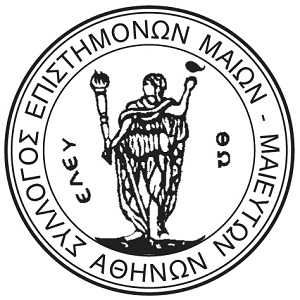
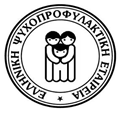

The objectives of the Hungarian Society of Perinatology and Obstetric Anesthesiology are as follows: helping the activities of its members by creating a professional and scientific platform of national and international relations, facilitating the education of obstetrics, perinatology, neonatology and obstetric anesthesia on national (undergraduate, postgraduate) and international levels, and make a commitment regarding the guidelines of obstetrics, perinatology, neonatology and obstetric anesthesia and anesthetic care. It is committed to the following: To be engaged in activities based on interdisciplinary voluntary association of members dealing with obstetrical anesthetics and perinatology (obstetricians, anesthetists, and neonatologists), coordinating and assisting clinical and scientific work in the field of obstetrical-gynecological anesthesia, performing interest exploratory activities, and promoting the development of national and international health connections. Also being responsible for promoting the solution of the social and ethical tasks at the national level in its fields of expertise, participating actively in shaping the public opinion of obstetrics, perinatology, neonatology and obstetric anesthesia, and providing rapid and specialized public information. In order to achieve its objectives, the Society performs proposing and evaluating activities on decisions, legislation and resolutions affecting its area of expertise. In order to promote the career of its members the Society is creating training centers, tenders, founding medals and awards, getting involved in editing and dissemination of the literature. The Society is building relationships with organizations engaged in similar activities in other countries, organising exchange of scientific experiences, national and international congresses.
The Neonatal Clinical Advisory Group of Ireland convened for the first time in 2012 as part of the National Clinical Programme of Paediatrics & Neonatology. Its membership is made up of Neonatologists and trainee representatives and has three main objectives; to provide clinical strategic vision and input, review and sign off relevant guidelines and models of care and proactively support and facilitate the implementation of the Clinical Programme on a nationally agreed model. The Group reports to the Clinical Lead and the Faculty of Paediatrics in the Royal College of Physicians of Ireland (RCPI).
The SIAATIP (Società Italiana di Anestesia, Analgesia e Terapia intensive Pediatrica) is an independent, autonomous and interdisciplinary scientific association and non-profit organization recognized as a medical scientific society by the Federation of Italian Scientific Medical Societies (FISM) and included in the Ministerial List pursuant to Law 24/2017 and therefore authorized to issue guidelines, recommendations and standards for good clinical practice. It aims to share knowledge and culture in anesthesiology, resuscitation, pediatric intensive care. The association, which proposes itself to public and private institutions as scientific-professional referent in the discipline, pays particular attention to the activities of training, research, publication of scientific documents and continuous professional development, also through the accreditation of its members and through national and international affiliations and collaborations. Among the objectives of SIAATIP there is the interdisciplinarity in the maternal and pedaitri area establishing the PNAMI project (Progetto Nazionale in Anestesia Materno-Infantile), a national and European reference point, with the collaboration of other associations. To this end, the Italian Confederation of Scientific Societies in Maternal and Pediatric Anesthesia was established, to which all the subsidiaries of SIAATIP and / or collaborating with it belong. In order to achieve the associative ends, the scientific society promotes cooperation with national and international scientific institutes and organizations and periodically brings together scholars and experts in the field who work in the scientific, clinical-welfare, university and hospital structures, public and private. SIAATIP has two important official journals: Pediatric Anesthesia and Critical Care Journal – PACCJ and Pediatric Reports.
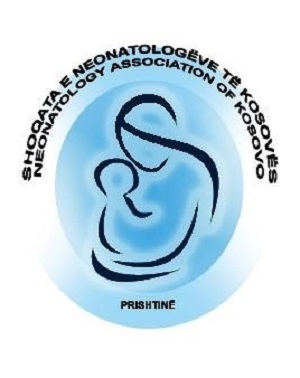
The Neonatal Society of Kosova was established in June 2019 and its members not only include Neonatologists, but also members from other medical fields, such as: Pediatricians, Ophtalmologists, Family Medicine etc.
We are also engaged in promoting the care for mother and children, and trying to organize different events, such as: Symposiums, Conferences, and trainings for our specialists, from which the newborn babies would benefit the most.
Lithuanian Association of Obstetricians and Gynecologists (LAOG) is the biggest and the strongest of organizations in Lithuania that unites doctors working clinical, pedagogical or scientific work in obstetrics and gynecology as well as in other related fields of medicine. LAOG gathers members, who are professionals at their job from many different hospitals in Lithuania. Doctors in LAOG are divided to the sections according to their fields of interest: Section of Younger Obstetricians and Gynecologists; Section of Cervix Pathology and Colposcopy; Section of Infertility; Section of Children and Adolescents Gynecology. The Association actively participates in finding solutions for women and children obstetrical and gynecological problems at public political area. Members of LAOG belong to various committees responsible for solving society health problems. LAOG applies evidence-based practice in its field of acting, releases scientific journal “Lithuania’s Obstetrics and Gynecology”, annually organizes international scientific conferences and scientific practical seminars for improving knowledge and skills. Lithuanian Association of Obstetricians and Gynecologists is a member of the following international organizations:
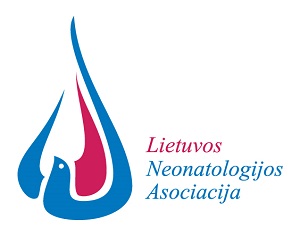
The Lithuanian Neonatology Association (LNA) is a professional voice in Lithuania through excellence in practice, education, research and professional development. Aims of the LNA are to encourage and advance the knowledge, study and practice of the science of neonatology in the country, to organize conferences and other activities to promote neonatal care, to promote a high standards of professional ethics, to create evidence based recommendations in the field of neonatology, to collaborate with other health care-related and parental organizations. LNA is a member of the Union of European Neonatal and Perinatal Societies (UENPS).
Lithuanian Paediatric Society promotes paediatric research and post-graduate training and children care in Lithuania. As such, it offers a high standard of ethics, a well-structured constitution, superb membership benefits, and a first-rate, annual paediatric congress. Lithuanian Paediatric Society aims to promote paediatric research in Lithuanian and encourage collaboration between different specialised fields of paediatrics to maintain paediatrics as a unified, scientifically orientated discipline.
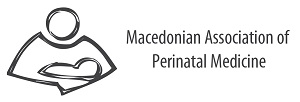
The Macedonian Neonatal Association was founded 25 years ago, at the beginning as a division of The Pediatric Association. For the last 15 years it is active as separate Association. The activities are mainly focused on organizing two or three meetings annually, where the most important issues concerning neonatal healthcare are presented and discussed. Workshops for primary reanimation have been regularly organized according to Neonatal Resuscitation Program (NRP) handbook. Our activities are recognized by Medical Chamber, Macedonian Medical Association and Ministry of Health. The mission of our association is to improve healthcare in neonatal and perinatal medicine. Our vision is to improve knowledge, skills and to train the healthcare providers to follow and practice evidence-based medicine. Our Neonatal Association actively participates in developing recommendations and guidelines regarding newborn health.
The Maltese Paediatric Association was set up in 1992. Objectives
The V&VN-IC is a professional association for nurses and other healthcare professionals working in the discipline of Intensive Care in the Netherlands. Their main goal is to enable IC nurses to perform their profession at the highest level of quality and with passion. The goals of V & VN-IC are achieved through cooperation, advocacy, professionalization, development and education. The discipline concerns intensive care for adults, children as well as neonates.
The Polish Neonatological Society is a scientific society which deals with the development of neonatology in Poland. The implementation of this objective is conditioned by close cooperation between obstetricians, neonatologists and paediatricians. Neonatology is rooted in the organizational and scientific basis of pediatrics and is closely related to it. The aim of the Society is:
“The Neonatal Portuguese Society (Sociedade Portuguesa de Neonatologia- SPN) is a scientific and non-profit association founded in 1986 as part of the Pediatric Portuguese Society. It is dedicated to the care of the newborn and integrates all professionals interested in the treatment of newborns. The mains objectives are: Formation in Perinatology namely preventive care, treatment, education and research, promoting training programs in different subjects, scientific meetings and orientations for all neonatologists. Identification and investigation of neonatal problems to transmit to neonatal professionals, society and government institutions the appropriate recommendations to promote preventive health culture and newborn care. The Society also promotes since 1994 the VLBW registry. The Society is composed by the direction and also committees and commissions that develop particular aspects of the Perinatal Medicine.
The Portuguese Society of Obstetrics and Maternal-fetal Medicine (SPOMMF) is a scientific and non-profit association of Portuguese obstetricians, founded on 2006. Its mission is to promote the study and development of Obstetrics and Maternal-Fetal Medicine in its community, prophylactic aspects and preventive, care and curative, pedagogic, scientific and research; and to contribute to the implementation of regional and national health policies in the areas of Obstetrics and Maternal-Fetal Medicine. We organize annual scientific meetings and support investigators with an annual research grant.

The Romanian Association of Perinatal Medicine – ARMP – was founded in 1995, and from 1996 it was approved as IAMANEH Romania, having the following main objectives:
National Authority on Quality Management in Healthcare (ANMCS) is a Romanian public institution, part of the public central administration, under the authority of Government, specialized on healthcare quality management and patient safety. The main activity of ANMCS is the evaluation and the accreditation of healthcare providers, as defined by the Government Decision #629/2015 regarding the role, structure, attribution and functionality of the National Authority on Quality Management in Healthcare. The mission of the ANMCS is to ensure ensure that the quality of health services and patient safety is continuously improved by developing culture of the quality healthcare management and patient safety in the romanian healthcare system, by education, assessing, accrediting and monitoring healthcare providers, according to the ANMCS standards. ANMCS objectives are to:
ANMCS developed for itꞌs in use Edition of Hospital Standards (2nd ANMCS Hospital Standards Edition) the standard # 02.04 ”The hospital promotes the baby-friednly concept (BFH)”, trying in this way to stimulate the „baby-friendly hospitals concept”, aiming mainly on the existence in the hospitalsꞌ policies of the promotion of the breastfeeding in neonatology, the identification and prevention of newborn illnesses and insurance, by the hospitals, of a friendly climate for children.
The Romanian Society of Obstetrics and Gynecology is a national association aiming to keep toghether and spread knowledge to all its members. It aims to provide clinical guidance, support, training to Romanian specialists. Our society ensures contact with European and National associations of obstetrics, gynecology and kindred specialties. We fight to improve our visibility and make our voices heard in order to promote the advances in Obstetics and Gynecology and shape the future of our specialty.
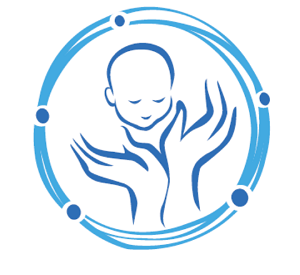
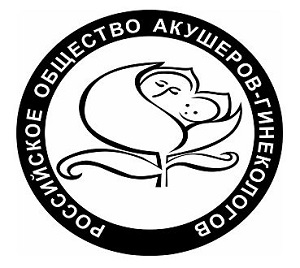
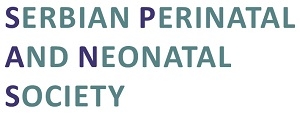
Slovak Chamber of Nurses and Midwives (SK SaPA) is the professional self-government organisation with nationwide scope, bringing together nurses and midwives. It has the seat in Bratislava. SK SAPA was established in compliance with the Act in 2002. Its predecessor was the Slovak Chamber of Healthcare Workers (1992 – 2001) and the Union of Healthcare Workers (1990 – 1991) completing secondary education. SK SaPA is member of the following international associations:
OUR MISSION Defend professional, economic and social interests of the members of the Chamber, whose nursing and midwifery practice is carried out in healthcare, social, educational and other establishments. OUR VISION Strengthen and unify status of nurses and midwives united in the Slovak Chamber of Nurses and Midwives. MAIN OBJECTIVES AND TASKS
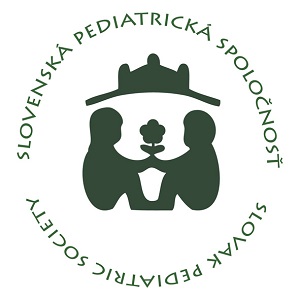
The Slovak Pediatric Society (SPS), with more than 1500 members, is one of the largest professional societies of the Slovak Medical Society. Its history and origin are closely linked to the noble aims and foundations of its predecessors. The SPS currently has the following sections:
At the same time it has established several working groups according to the current needs of the SPS. Currently these are: Working Group on Scientific Research, Working Group on Breastfeeding and Working Group on Vaccination. SPS organizes National pediatric congresses at two-year intervals and organizes nationwide pediatric conferences focused on current problems in pediatrics several times a year.
The Section of Nurses Working in Neonatology, part of the Slovak Association of Nurses and Midwives is an organizational unit of the Slovak Medical Society. It has been working in Slovakia since 1998. It solves problems in the area of institutional and non-institutional education, nursing exchange internships, the competencies of neonatology nurses, norms of nursing staff. Since 2003, it yearly organizes conferences for nurses taking care in newborn. The main aims are to join together nurses providing care to newborns, help them to grow professionally, prepare standards of nursing care, prepare of nursing documentation as well as follow and comment on many decisions regarding neonatology nurses and neonatology nursing care.

Slovenian Neonatal Society (SNS) has the mission to provide a common platform for all paediatricians involved in neonatal care in Slovenia. SNS aims to promote and support education and networking for professionals involved in neonatal care in Slovenia, to maintain and improve the quality and safety of medical care for high-risk newborn infants and their families, to promote the exchange of experiences in the various fields of patient care, to organize regular meetings for its members and to represent Slovenian neonatologists and co-operate with other neonatal associations worldwide.
The Spanish Association of Pediatrics (Asociación Española de Pediatría – AEP) represents more than 3000 of pediatricians and pediatric surgeons, being the official voice of Pediatric and its specialties in Spain. As such, it works for every aspect regarding physical, psychological and social health of children and adolescent, as well as their environment, trying to provide the best scientific, evidence and ethic-based knowledge to its members. To reach this aim, it promotes high standard quality post-graduate formation, research at different levels and serves as a bond of union between the different specialties and geographical areas in order to create the best scenario to achieve global health in childhood and adolescence.
Baby Friendly Hospital Initiative (BFHI) was launched by WHO and UNICEF to encourage hospitals, health services and, in particular, maternity wards to adopt practices that protect, promote and support exclusive breastfeeding from birth. IHAN-España (Initiative to Humanize the Assistance to Birth and Breastfeeding) is a non-profit organization that supports and disseminates the baby friendly Initiative in Spain and is responsible for the accreditation of Spanish maternity wards, primary care health centers and, in a near future, neonatal units. IHAN also works to improve knowledge and skills related to breastfeeding care and respect during labor and childbirth among health care professionals, and to establish and improve contact with breastfeeding mothers´ support groups to whom we offer support and collaboration.
The Spanish Research Network on Maternal and Child Health and Development (SAMID) has the mission of generating high-quality scientific knowledge in maternal and child health. SAMID Network comprises 12 research groups which the main objective is to promote translational research focused on pregnant women, newborn and infant stage until the end of adolescence when reaches its full development. The overall goal of the network is to improve maternal and child health by strengthening the cooperation between the fields of obstetrics, neonatology, pediatrics, nutrition, intensive care, and experimental research.
The Spanish Society of Neonatology (Sociedad Española de Neonatología SENeo) is a scientific and non-profit association dedicated to the care of the newborn. The General Purposes are:
The Swedish Association of Paediatric Nurses (Riksföreningen för Barnsjuksköterskor) is a section in Swedish Society of Nursing since 1975. It is an association of nurses working within or with an interest in health and medical care for children and young people, has about 1800 members and the majority of these are specialist nurses in paediatric care. The association organise annual conferences together with paediatric physicians, support members with scholarships and grants for paediatric nursing research. The framework for the association is children and young peoples, and their families’, rights and needs in the health care and United Nations Convention on the Rights of the child. The association have a lot collaboration with national and international networks.
The Swedish Neonatal Society is a non-profit society and the professional interest group for neonatologists and other physicians interested in neonatology in Sweden. We are a subdivision of the Swedish Paediatric Society. A great majority of the Swedish neonatologist are members in our society. Our purpose is to promote research and education in neonatology, to develop national guidelines in neonatology and to be a professional advisor for the Swedish Pediatric Society, national and regional authorities and other non-industrial contacts in questions concerning neonatology in Sweden. We focus on promoting an equal and evidence-based neonatal healthcare of high quality in our country, including patient and family-centered care.
The Swiss Society of Paediatrics (SSP) is the official national healthcare society for child and youth health and is representing the professional interests of paediatricians from clinical centres and practice. The aim is to support healthcare professionals in education and training and to ensure high quality in paediatrics.
Established in 1999 Members: 1,450 neonatologists, 10 obstetricians-gynecologists, 12 perinatologists, 30 neurologists, 30 psychologists,15 paediatricians and 23 regional branches. The main goals and tasks of the Association
The Public Association «Ukrainian Academy of Paediatrics» has been established in Ukraine. Together we would like to create a unified Ukrainian paediatric medical space, to expend ties between the medical communities of Ukraine and foreign states, to improve the qualification level of Ukrainian paediatricians, subspecialties, and family doctors, to promote international standards of medical and social care for children as well as protection of child’s rights and freedoms. Health care reform is now the most important issue for the Ukrainian. And in the context of the Agreement on Association between Ukraine and the European Union has become particularly important cooperation in the health sector aimed at increasing its capacity in Ukraine, strengthening security and human health as a prerequisite for sustainable development and economic growth by implementing reforms. According to this position in Ukraine established the Public Association “Ukrainian Academy of Paediatrics”, which have intention to expand its relations activities between the medical communities of Ukraine and foreign states, to promote international standards of medical and social care for children, realization and protection of their rights and freedoms. Since 31 January 2016 our organization is an associate member of the European Academy of Paediatrics. Support of international paediatric community and sharing of knowledge are crucial towards the European Union.
The British Association of Perinatal Medicine (BAPM) promotes Excellence in Perinatal Care in the UK by helping deliver high quality perinatal care: providing support and advocacy for perinatal professionals: promoting research and innovation in perinatal care: providing advocacy for babies and their families Our values include:
Membership of BAPM is open to all Perinatal Practitioners, with variable membership rates, depending on career stages. Membership of BAPM offers the opportunity to join a growing community dedicated to shaping the delivery and improving the standard of perinatal care in the UK. Additional benefits of membership include event discounts, access to career-enhancing resources and the opportunity for networking with colleagues in Perinatal care.
The Neonatal Nurses Association UK (NNA UK) is a national organisation representing neonatal nurses, steered by neonatal nurses to promote neonatal nursing for the benefit of sick babies and their families throughout the country. We believe that collaborating with other key national and international partners will better the lives of babies and families in neonatal care as well as empower the staff that work so tirelessly for them. Collectively, we aim to be the voice for neonatal nurses, babies and their families on vital issues that affect us all.
The Royal College of Paediatrics and Child Health (RCPCH) is the professional body for paediatricians in the UK. It has over 19,000 members who are based in the UK and abroad is responsible for the postgraduate training of paediatricians. The College’s mission is to transform child health through knowledge, innovation and expertise. The College aims to:
The College has a range of expertise to support the paediatric clinical community and improve child health across the UK and globally and has extensive experience of engaging with a wide range of stakeholders on research and quality improvement projects, national clinical audits and set clinical standards for paediatric practice.
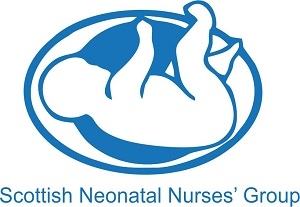
The Scottish Neonatal Nurses’ Group (SNNG) is a professional interest group for neonatal nurses, midwives and others working in the neonatal speciality. The group was founded in 1989 The aims of the group are:
You are currently viewing a placeholder content from Facebook. To access the actual content, click the button below. Please note that doing so will share data with third-party providers.
More InformationYou are currently viewing a placeholder content from Instagram. To access the actual content, click the button below. Please note that doing so will share data with third-party providers.
More InformationYou are currently viewing a placeholder content from X. To access the actual content, click the button below. Please note that doing so will share data with third-party providers.
More Information